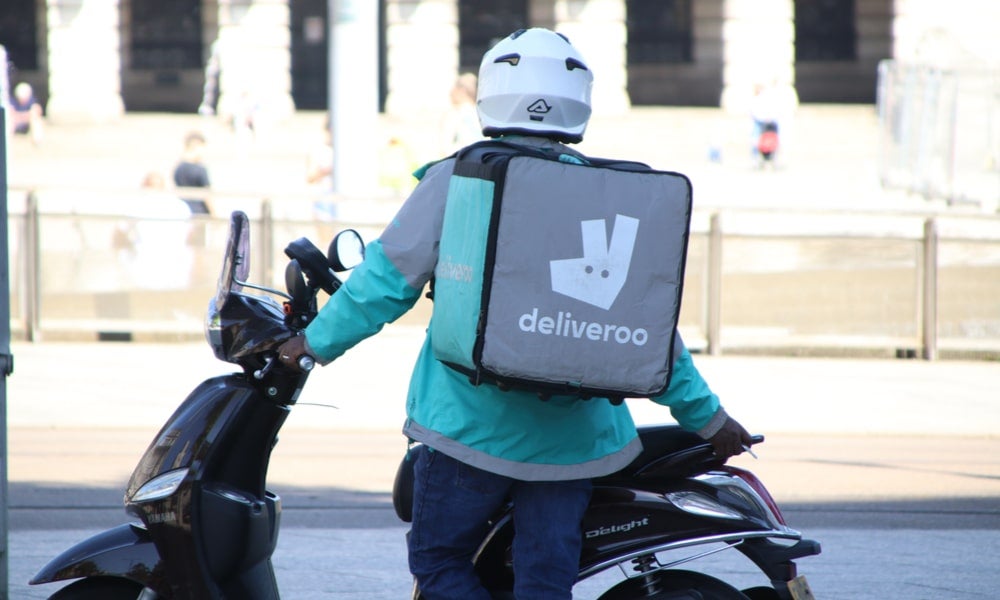Has Deliveroo “done a Foodora” in exiting Australia?
Deliveroo’s decision to exit Australia’s food delivery services platform market has a number of important implications for workers in the sector
When food delivery platform Deliveroo pulled out of Australia it cited a tough business environment, but there are suspicions on the part of observers such as academics and the Transport Workers’ Union that the company withdrew because of a court case that challenged its contract work model.
Deliveroo claimed that there is too much competition in the on-demand food delivery sector in Australia, said Dr Greig Taylor, a lecturer in the School of Management and Governance at UNSW Business School. “It certainly is a tightly contested (some might say ‘saturated’) market. The company argues that it just doesn’t make enough profit in its Australian subsidiary to continue,” he said.

Deliveroo, which is headquartered in the UK and operates in several other markets around the world, claimed its Australian business represented approximately 3 per cent of the company’s gross transaction value (GTV) in the first half of this year.
However, Dr Taylor said there are suspicions that Deliveroo has “done a Foodora” in exiting the Australian food delivery service market. Foodora – a smaller, less well-known food delivery platform, decided to wind up its Australian operations in 2018.
The company gave a similar reason to Deliveroo at the time, stating it was shifting its focus “towards other markets where the company currently sees a higher potential for growth”. “The reality was that the company had been taken to the federal court by the Fair Work Ombudsman (FWO) earlier that year over the highly controversial practice, widespread in the sector, of classifying its employees as ‘independent contractors'. When the ruling went against it, Foodora announced they were exiting the Australian market,” said Dr Taylor.
Read more: Price of a life: why food delivery services need a regulation overhaul
The case against Deliveroo
Deliveroo had faced a similar case last year, where one of its delivery riders, who had been fired for delivering too slowly, took his case to the Fair Work Commission (FWC). It ruled the rider’s favour, saying there was enough evidence to support a claim that the rider should be considered an employee, and not an independent contractor, and was therefore entitled to compensation for unfair dismissal.
“This had a number implications for Deliveroo beyond this specific case. It was in danger of setting a precedent that could have re-categorised its entire rider workforce as employees, adding significant costs to its operations, as statutory minimums and contributions would apply,” said Dr Taylor. The company appealed the ruling, and in August a Full Bench of the FWC ruled in favour of the company, citing a recent High Court decision in a similar case.
Nevertheless, with the ALP in the federal government threatening to legislate on this issue (in addition to other challenges to the previous status quo across the platform sector), Dr Taylor said it seems Deliveroo has decided to cut its losses by going into voluntary administration. “It has pulled similar stunts in Europe this year, as regulators and policymakers begin to clamp down on the miscategorisation of workers in this sphere,” he said.

What this means for Deliveroo workers
“In the specific case of Deliveroo’s workforce, they are pretty much left high and dry by the company’s sudden exit,” said Dr Taylor. “They are not classed as employees and therefore have few employment protections, including entitlement to retrenchment compensation.”
Those who are owed money in wages are being categorised as “unsecured creditors” by KordaMentha, the firm in charge of the voluntary liquidation, and Dr Taylor said this means it’s likely they won’t even get outstanding salary payments.
“Most work across more than one delivery platform, meaning they have supplementary employment, but this will be scant consolation to those who have lost money as a result of the company folding, or those who relied on Deliveroo as their primary source of income,” he said.
Legal cases such as those against Deliveroo and Foodora have broader implications for workers in the sector, and Dr Taylor said there is significant international interest in the area from both policymakers and academics.
Subscribe to BusinessThink for the latest research, analysis and insights from UNSW Business School
“It would seem regulation and/or legislation are incoming to make employment at these firms less precarious. This is certainly something the Transport Workers’ Union (TWU) has been lobbying for some time,” he said.
Dr Greig Taylor is a lecturer in the School of Management and Governance at UNSW Business School. His broad areas of academic research interest involve the sociology of work, trade unionism, labour history, critical management studies, cross-cultural management, and political economy. For more information please contact Dr Taylor directly.
The academic journal, The Economic and Labour Relations Review (published by UNSW and Cambridge University Press) has an upcoming special edition entitled “Platforms in the City” which focuses on the vagaries of employment in the sector across a variety of countries.

